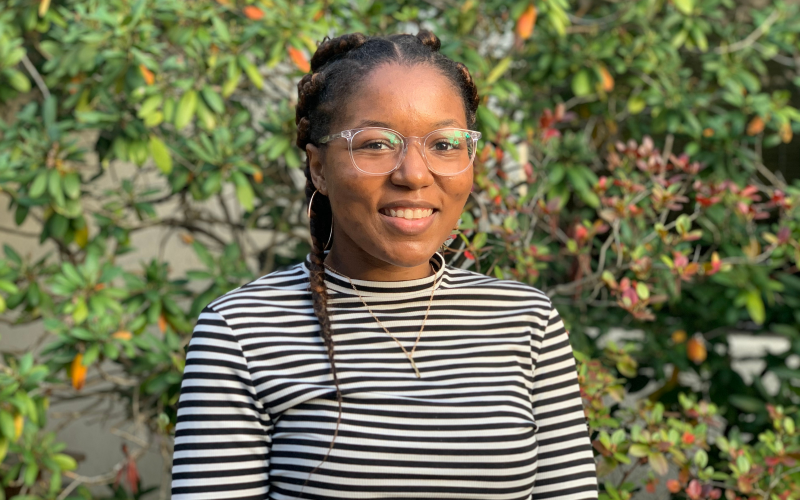MPH Student Provides Evidence to Support Maternal Mental Health Policy Development

ALBANY, N.Y. (October 22, 2021) – Community Care Physicians Scholar and MPH student Jabrea Robinson recently conducted research to better understand how peer navigators could be used as an intervention for mood and anxiety disorders caused by the physical and emotional changes that occur during and after pregnancy. Her work, based at the Schuyler Center for Analysis and Advocacy, will be used to support the development of policies that will create interventions to better address the mental health of new parents.
The Schuyler Center for Analysis and Advocacy conducts research across a variety of domains, including reducing child poverty, increasing access to childcare, and improving child welfare systems. As a summer 2021 intern, Robinson assisted various policy analysts on research topics related to maternal and child health. In particular, she examined how those who have the training to help along with the shared experience—also called peer navigators—might be able to uniquely inform, motivate, guide, and support parents struggling with mood and anxiety disorders.
“When a child has problems with behavior or socializing, often the parents are blamed. However, it’s often overlooked as to what may be going on from the parents’ point of view,” Robinson explains. “Parents often experience perinatal mental health disorders that go undiagnosed or untreated. This can impact the child and play a role in development.”
Using peer navigators as an intervention may help to destigmatize the need for help and communicate to parents that they are not alone in their experience.
“Over 44,000 women in New York State are affected by perinatal mood and anxiety disorders,” says Robinson. “By creating and enhancing peer support programs, we can normalize so many women’s feelings and ultimately this will have a positive effect on children’s development.”
Robinson analyzed the problem, reviewed previous studies and programs, discussed barriers and challenges for peer support programs, and worked on a paper to propose legislation to address maternal mental health. She also evaluated New York’s current policies on peer support for mental health as a whole and assisted with fostering a collaboration with the Postpartum Resource Center for the paper.
Her conclusion: Peer support would provide many benefits in New York to address common disorders new parents feel, including anxiety, depression, obsessive compulsive disorder, and substance abuse disorder.
“This internship gave me incredible insight into the process of developing a policy,” says Robinson. “A huge amount of research goes into the development—and then the brainstorming to fine tune a policy begins. Being a part of an initiative that can influence how parents deal with maternal health issues has been a very rewarding experience.”
Researching peer navigators was only one part of Robinson’s internship. She also assisted on webinars related to maternal health, conducted evaluation work under the Learn the Signs Act Early program, and participated in workgroups related to equity and other maternal health issues—giving her the hands-on skills to make a difference in the public health field.
Robinson’s internship was made possible with support from Community Care Physicians, P.C. (CCP). The grant was provided to the Maternal and Child Health program for maternal and child health internship funding.
“I am grateful CCP funded my internship because it gave me an inside look at how policy is developed for programs,” says Robinson. “My goal is to become a director of an organization that works hand-in-hand with the community to determine their main health needs. I’d like to make healthcare changes through policy or programs that directly affect the community or communities at large.”


